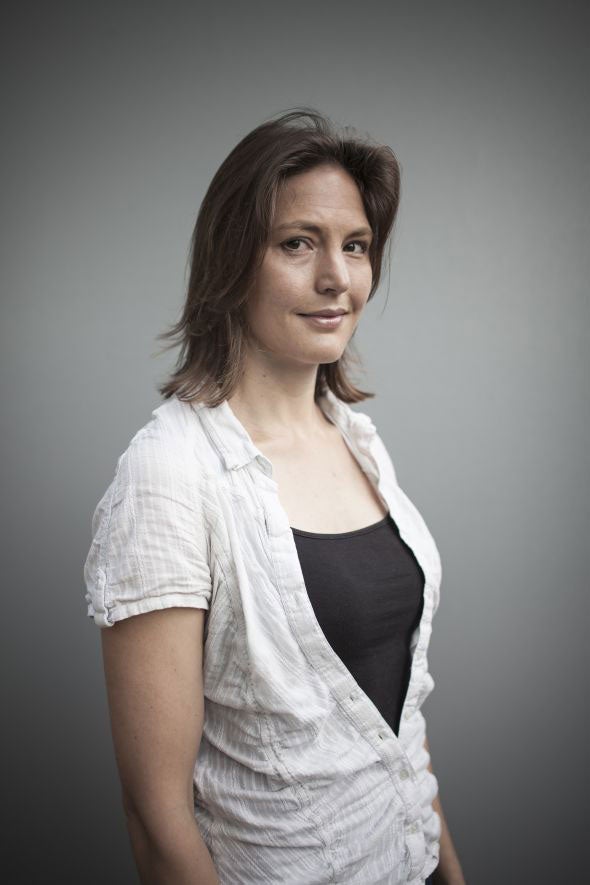Dr Helen Czerski: The TV physicist on inhuman noises, being all at sea and turning raisins into lava lamps
Credo interview by Adam Jacques

Being called the female Brian Cox is a double-edged sword
On the one hand Brian is a fantastic communicator of science and being compared to him [after appearing on BBC series such as Orbit: Earth's Extraordinary Journey] is a compliment. But I don't see why a female physicist should be defined as some version of a male, rather than just an individual in their own right, and Brian's wife [the TV presenter Gia Milinovich] agrees with me on that!
We are arrogant in the way we look at the world
Many people assume that the world we perceive is all there is, but lots of animals can see, hear or touch things we can't. While filming [upcoming BBC series] Beyond Human, we looked a lot at the physics of animal senses. I found it extraordinary that an alligator can use its entire body as a subwoofer. By plunging its back below the water, it can put out a low-frequency infrasound that vibrates the water around it and attracts female alligators from a long way away; we wouldn't even be able to hear it.
Humans are very slow creatures
We are complicated beings that can do lots of things, but the physical world can do very simple things right in front of our noses that are too fast or small for us to see. When I did my PhD [in experimental explosives physics], I did a lot of high-speed photography. In particular, I remember an experiment using a gas gun that fired high-speed projectiles at pieces of metal. When metal gets walloped, it actually flows like a liquid, as it can't get out of the way fast enough.
It's hard to appreciate the planet's scale unless you've been at sea for a month
It sounds trite, but the longer you're bobbing on the ocean, the more you realise its vast scale, as planes are so quick. I remember after a month at sea in the South Atlantic [studying ocean bubbles and their effect on climate], we ended up in South Georgia for half a day, to visit Ernest Shackleton's grave. We'd been out at sea for such a long time that when this mountainous island loomed, it suddenly looked like a scar on the ocean, poking up from the sea where it shouldn't be.
Physics is not in a lab, it's in everyday objects
A beautiful illustration of this is if you take an unopened bottle of lemonade and add raisins to it. Initially they'll sink to the bottom, as they're heavier than water. But raisins are full of wrinkles, and bubbles like growing in V-shaped crevices. So while they sit at the bottom, each raisin grows itself a lifejacket and rises to the top, where it turns itself over until all the bubbles have fallen off, and it will drop back down again. They'll go round and round like a lava lamp for about 30 minutes.
Pompous language winds me up
It happens all the time in science communication: often you get famous scientists using long words and jargon in reports as they think it makes them sound clever. But I'm not into that elitist attitude; people who try to exclude others while inflating their own self-importance need to re-examine their world view.
I'm no longer afraid to walk into any situation
When I was a teenager, I was too shy to speak to people as I felt that everyone had better things to do than talk to me. Frustration made me change, as you miss out on stuff when you're shy; you're left out and feel lonely - and it took me until I was well into my twenties for that to change. *
Dr Helen Czerski, 35, is a physicist and oceanographer, whose work focuses on the optics and acoustics of ocean bubbles. Her new three-part TV series, 'Beyond Human', airs on BBC2 later this year. She will also be appearing at the Cheltenham Science Festival (cheltenhamfestivals.com), which runs from 3 to 8 June
Subscribe to Independent Premium to bookmark this article
Want to bookmark your favourite articles and stories to read or reference later? Start your Independent Premium subscription today.

Join our commenting forum
Join thought-provoking conversations, follow other Independent readers and see their replies